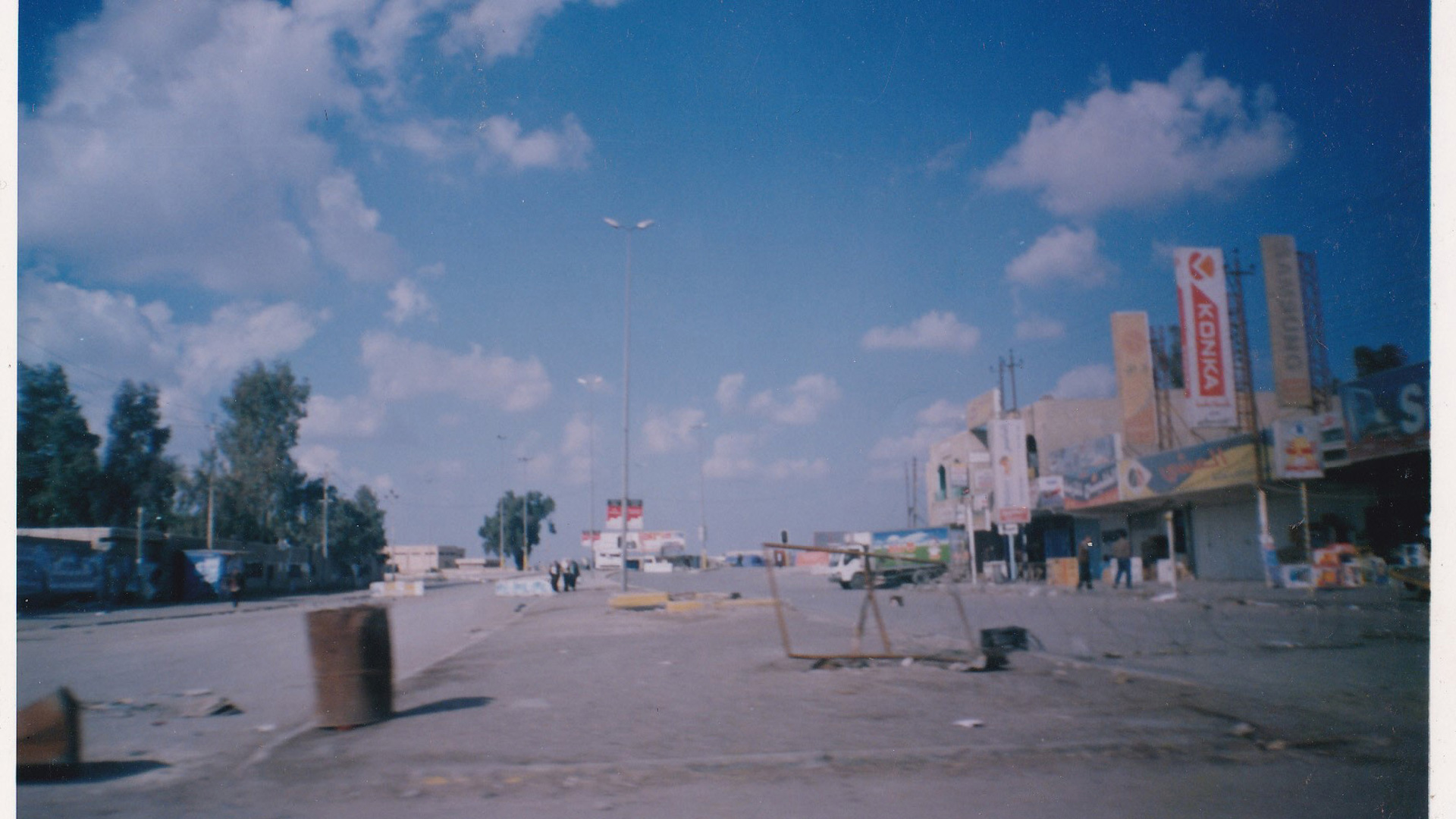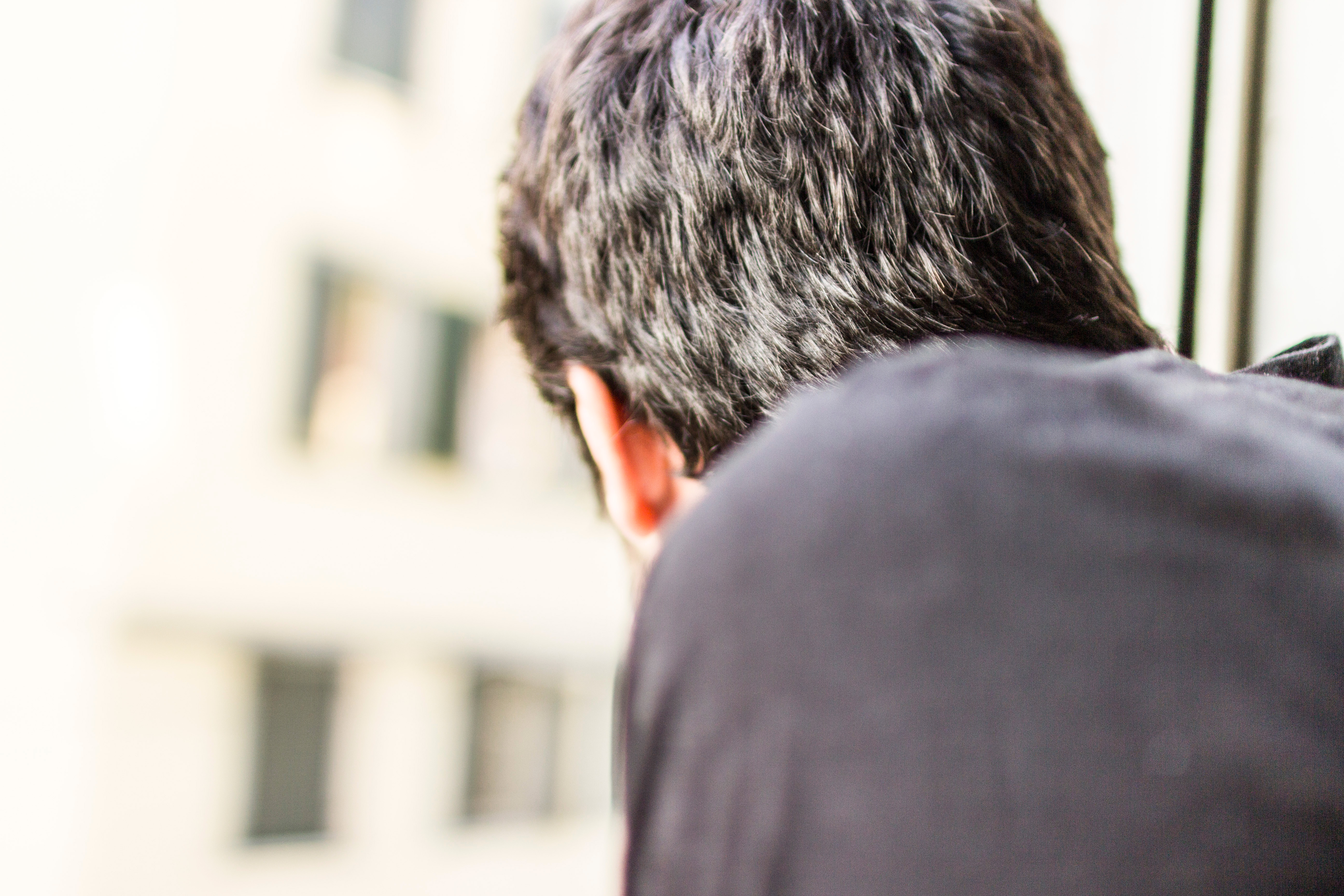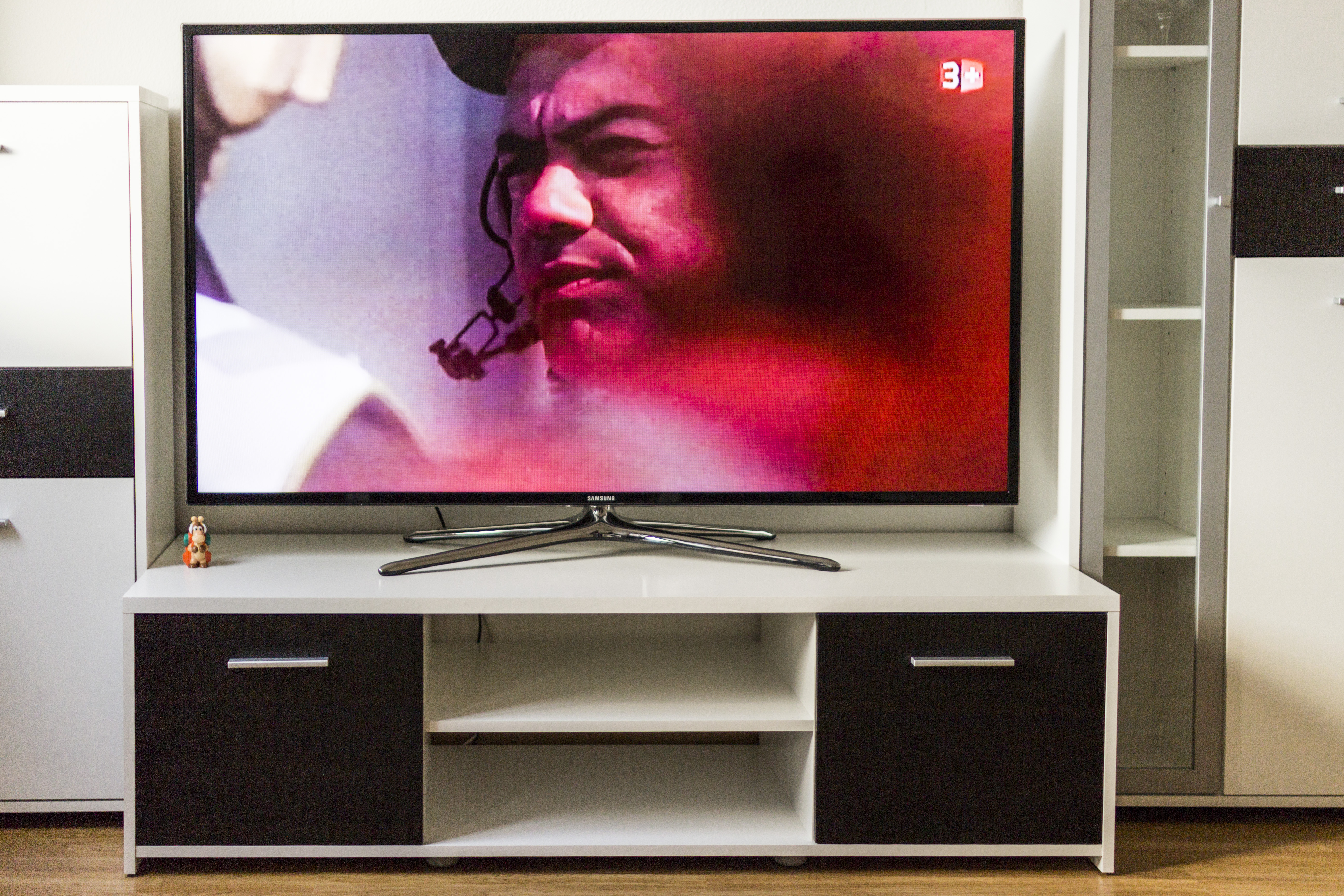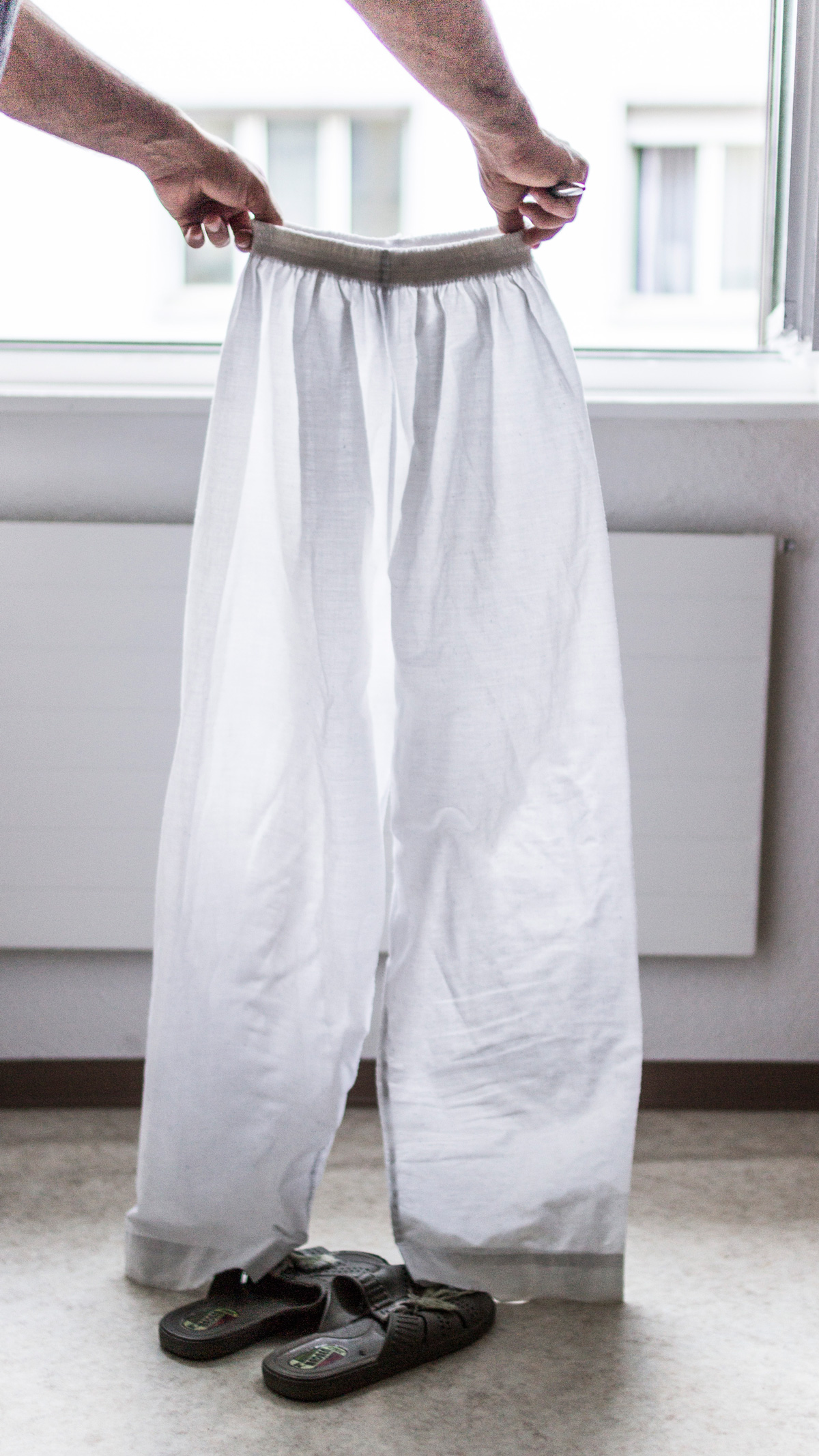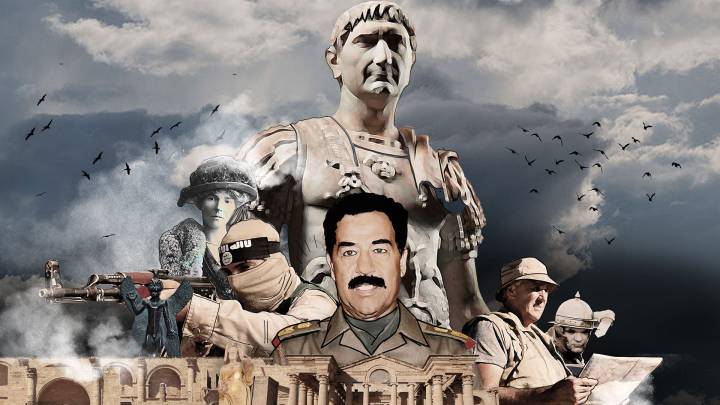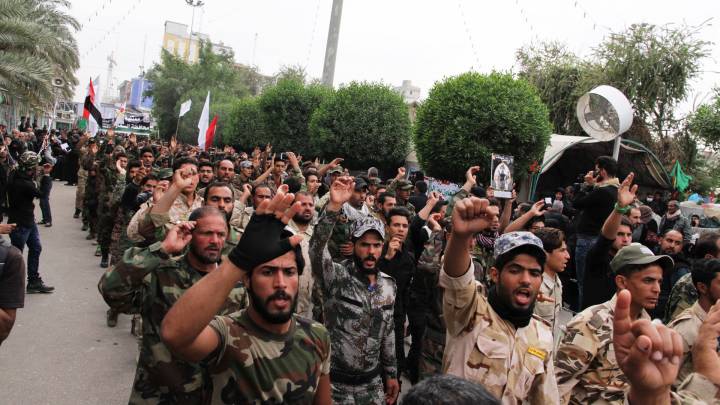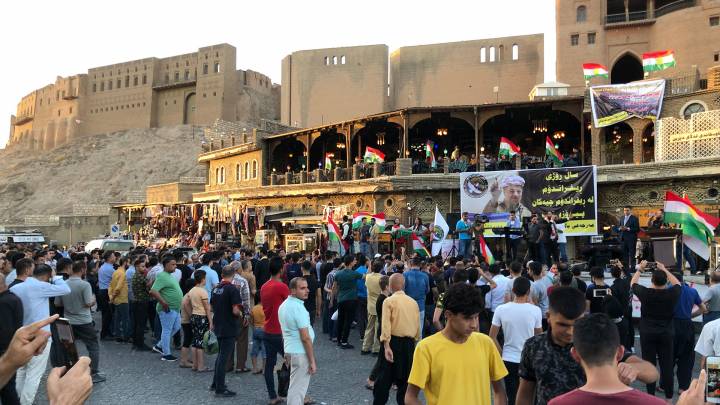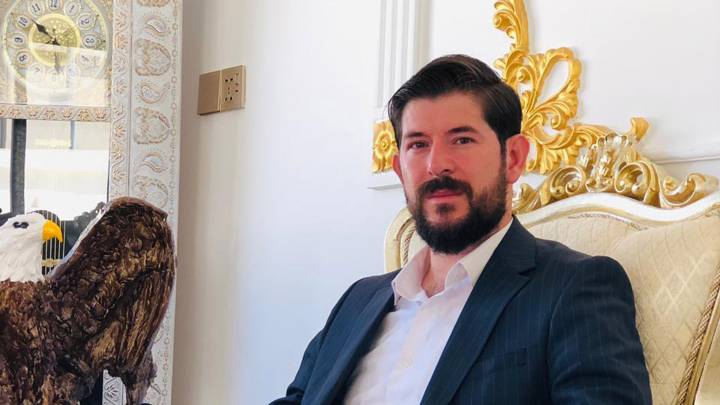Hassan was 15 when war broke out in Iraq in 2003. Only a few years later, he was running a small business: kidnappings, attacks on military posts and later attacks on Shiites as well. And in post-war Iraq, his story is not unique.
The kidnapping was simple, even though the engineer seemed to have suspected they were after him. Every morning he left the house at different times. And he was always holding hands with a child – a little pre-school girl. Did he think that he would therefore be left alone? Three of them dragged the engineer out of his car, leaving the girl sitting there. They had their pistols drawn. Everything went smoothly. The engineer didn’t even have time to grab his pistol from under the driver’s seat. In their hideout they tied him to a chair with his hands behind his back, blindfolded. “We know everything,” Hassan bellowed. “We know you’re building concrete watchtowers for the Americans!”
That was not actually what interested Hassan and Omar, but it was still a good pretence. The engineer wasn’t Shiite, which the group would have preferred. But it was also not that important which sect a hostage belonged to, so long as he could pay for his life. Omar punched the man numerous times in the face, then they went into the next room to discuss things. They talked about how they wanted to take the engineer aside and shoot him.
He was 19 back when he founded his own terrorist cell in Baghdad and held neighbours hostage for ransom.
“I said that extra loud, so that he’d hear it and get scared.” Hassan dries his wet hands on a tea towel. He is standing by the stove in his Swiss apartment. A chicken is boiling away in a pot. Today Hassan is 27 years old, and is telling his story for the first time. He was 19 back when he founded his own terrorist cell in Baghdad and held neighbours hostage for ransom. The engineer earned him $15,000 – seed capital, which Hassan swiftly invested: “With the money I rented a second house, a second car, and bought weapons and fuel.”
2006 and a climate of violence overtakes Iraq
That was in 2006, when Iraq, occupied by troops from the international coalition, sank into insurgencies and civil war. Young men like Hassan and those in his cell were arrested by US troops under the umbrella term ‘insurgents’. Rebels, that is, supposedly allied with al-Qaeda and financed with money from abroad. Many rumours circulated about the activities of such groups, but there was little in the way of reliable information. Who were they fighting against? And above all: what for? What became of the much-feared ‘al-Qaeda generation’? And against the backdrop of the current war in Iraq and the advance of the much-feared ‘Islamic State’ movement, many are asking: how did things get to such a point that the hatred between Shiites and Sunnis could infect society to such an extent?
He is proud to be in Switzerland. He has no regrets about his past.Hassan’s story can shed light on this. He is out now, he has left Iraq behind him and is proud to be in Switzerland. “I’ve come this far, so I might as well do the rest. Fleeing Iraq, a visa, a job, moving out of the asylum seeker accommodation. Now I only need my own place and a car,” Hassan says. He has no regrets about his past.
In 2006, human rights groups documented well over 20,000 kidnappings. Hassan’s cell was a small player in a brutal industry that had little to do with Jihad. “The groups belonging to al-Qaeda killed their victims immediately. They were a bit more severe than we were,” he explains calmly and soberly.
Cell division and growth
Little by little, Hassan and his men developed the required routine – and the certainty that the over-stretched authorities and military would make no attempt to pursue a small criminal cell like theirs. No one knows for sure how many such ‘insurgents’ were in Baghdad at the time, but they must have numbered in the thousands. They only ever took cash. Hassan travelled to the houses of his victims’ families, but he always made sure he disguised himself. “You don’t feel fear, just nervous.” He thinks a moment before adding that deciding whom to kidnap and which member of the group should do it is the hardest part.
Hassan had dreamed that, with the help of the US, Baghdad would become a second Dubai: sparkling, rich and international.When a coalition of soldiers from 39 countries led by the US, invaded Iraq on March 20, 2003, the idea that he would become a professional extortionist was still unthinkable to Hassan. The 15-year-old Hassan would have even joined the ‘coalition of the willing’, as defined by then US President George W. Bush. He too was willing. He had dreamed that, with the help of the US, Baghdad would become a second Dubai: sparkling, rich and international.
The first months of the occupation in Iraq didn’t go all that badly – the political errors committed by those newly in power no longer interest Hassan in detail. What he noticed, though, was that hell first broke out in Fallujah, in the western Sunnite province of Anbar. One year after the invasion, battles raged between the US Army, Sunni insurgents, al-Qaeda and scattered Saddam Hussein loyalists. The battles were also particularly fierce because Iraqis had dismembered the corpses of four American soldiers from the security firm Blackwater and hung them from a bridge. In April 2004 insurgents fought off the US Army, driving the battle line further east. At the time Hassan still lived about 50 kilometres from the front line, in his hometown near Baghdad, whose name would soon be known throughout the world: Abu Ghraib.
“In Abu Ghraib soldiers had taken control of the two major highways. A local street ran parallel between them, which is where our house was.” Hassan explains how American jeeps drove up and down the street. From his place he could see everything. Thanks to the curfew, they could no longer attend school. He saw plumes of smoke. He heard gunshots. He could feel the war.
On a particularly hot April day, at around six in the evening, two tanks approached Hassan’s neighbourhood. A few insurgents had holed up there and wanted to flee through Hassan’s parents’ yard. Hassan stood blocking their way. “Why are you retreating?” The men laughed at the 15-year-old. “Do you want to fight?” – “Sure!”
Disbelief at the men’s reaction still glimmers in his eyes. “They handed me an RPG-7 and then laughed at me again.”
Hassan finds the question of what an RPG-7 is odd. “It’s a rocket launcher, of course.” He pronounces the names of weapons completely naturally, as if everyone knew them. Hassan’s flatmate Faisal enters the room. Faisal also left Iraq for Switzerland – earlier he served in the Iraqi Army. As proof Hassan indicates the scar on Faisal’s left eye. “He got that from a fighter,” Hassan explains. “It was a Kalashnikov," Faisal says, also pointing at the scar. He seems shy and reserved. Hassan laughs, Faisal smiles and looks at the ground. “Terrorists,” Faisal says later, when Hassan is briefly out of the room.
When Hassan talks about his deeds, he always speaks of ‘actions’, never ‘attacks’. He claims to be no terrorist, and no Jihadi. “I am a freedom fighter!” When Hassan talks about his deeds, he always speaks of ‘actions’, never ‘attacks’. He claims to be no terrorist, and no Jihadi, because for that you would have to be pious. “I am a freedom fighter!” He sports a Che Guevara T-shirt. A Christmas card is stuck to the kitchen cupboard; on it is written “I want to believe.”
It can’t be due to his upbringing, Hassan thinks. His parents were neither stricter nor more neglectful than any others. Hassan’s father was a businessman and co-proprietor of a beverage store. His mother was a teacher. The economic situation in Iraq was bad, but the family had it better than others. Hassan is the oldest of four children. In Abu Ghraib he attended the school where his mother taught. His favourite subjects were mathematics, geography and history. But school “was not really my thing”, he says now. After year nine he left to begin an electrician’s apprenticeship. Who would have thought it would come in handy later on – for making bombs.
As gunfights in Abu Ghraib increased, Hassan often waited them out in his father’s shop, not only in order to work, but also to speak with Ali, his father’s business partner and a well-known insurgent in the neighbourhood. Hassan’s parents knew that Ali recruited young men. “The arsehole is exploiting the young!” they would say at home. “But he didn’t exploit me, my parents completely misunderstood it,” Hassan says. He wants to take a break and get something to eat.
On the second day Hassan tells his story, standing again by the stove. Fish with tomato sauce and rice today. He has a rice cooker and just recently obtained a freezer. He deliberately wears a different T-shirt while cooking, so that later he can go out to a club or bar without smelling of food. Hassan carefully lifts the fish fillet off the bone. He still eats with his hands, it tastes better. His flatmate Faisal drinks yoghurt with water and salt during the meal. Hassan doesn’t like that. He also dislikes the fact that Faisal smokes after eating. “It’s unhealthy!” he grumbles, before going out to the hallway and spraying himself with a massive amount of perfume. Faisal points to Hassan’s shelf, where about 10 different bottles stand: “If he has this many kinds of perfume, how many must Bin Laden have had?” They both laugh.
Going underground
Through Ali, Hassan began his underground career. Without al-Qaeda and initially with their own resources, Ali occasionally organised military exercises in a scraggy woodland near Abu Ghraib for the young people in the group. They focused on the basics, because the youths hadn’t served in the army. “As a militiaman, you don’t need what a normal soldier needs,” Hassan explains. There are no long marches, nor close combat training. “You set a bomb in the evening, light it, then go home. When you fire your weapon, you’re far off. Then you get into a car and get out of there.”
During the war in Iraq, media and intelligence agencies reported over and over on funds flowing in from Saudi Arabia and other Gulf states to support the Sunni insurgency and destabilise the Shiite-dominated government. Hassan insists that Ali’s militia was completely independent. They obtained explosives for their actions by recycling, among other means: the Americans had disposed of thousands of rockets from the Iraqi Army’s inventory, but often without removing the warheads.
Warheads and high-calibre artillery rounds were converted into explosive and incendiary devices with remote detonators.Fascinated, Hassan tells how a particular man gathered explosive charges from the very first day. “Every day he found four full truckloads and sent them to the soldiers!” Initially Hassan was only allowed to prepare bombs for the group. At the time, under Ali’s leadership, they targeted the Americans exclusively. Hassan explains their course of action in detail: warheads and high-calibre artillery rounds were converted into explosive and incendiary devices with remote detonators. ‘Nimsawi – Austrian,’ the insurgents would say, as many of the warheads were manufactured in Austria. “Whenever I meet an Austrian it comes to mind,” Hassan says, laughing.
Even today Ali doesn’t know how many people died during his ‘actions’. Not everything was reported in the news: between 2004 and 2005, sometimes over a thousand people died in a month in Baghdad.
Hassan slouches in a kitchen chair, his head on his right arm. He seems to be concentrating. His eyes wander upward when he reflects. The silver chain about his neck sparkles in the evening sun shining through the kitchen window. He only recently received it from his mother in Iraq.
His mother is Shiite. He always used to notice how during a particular part of prayer she wouldn’t clasp her hands in front of her torso like his Sunni father. A Shiite mother, a Sunni father – this wasn’t so unusual in Saddam Hussein’s Iraq. No one ever tried to indoctrinate him, Hassan says. He was no follower. There was no talk of Jihad. Not even from Ali. Hassan only became interested in Islam once he had shed blood. He started to read and to ask himself what prayer really is. How to pray correctly, and why.
Hassan plays with his chain. “The Shiites don’t follow the Koran correctly, but here at home everyone decides what they are for themselves.” He would only later experience the real differences between Sunnis and Shiites. Only at 18 – already a bomb specialist for assassinations – did Hassan spend three months at a Sunni Koran school. “That was when I changed.” It was also when everything in Iraq changed.
At the beginning of 2006, the Liwa al-Muthanna elite unit carried out large-scale raids in Abu Ghraib, and approached Hassan’s mother at home. “I was with my aunt in Baghdad when my father called. At that moment my parents realised that I was in deep,” he says. He may well have been in deep, but he was far from finished. He continued fighting under Ali, but he was now old enough to establish his own cell. Abu Ghraib was a particularly contested area, and life became unbearable for Hassan’s parents. They decided to move. Hassan stayed with his aunt in the al-Khadra area of Baghdad.
From then on I didn’t give a shit whether my actions targeted Iraqis or Americans.Ali’s group had their cover blown during the raids, and 6,000 suspects were arrested. “There were so many good soldiers among them!” Hassan says with an undertone of regret. He perceived the wave of arrests as a declaration of war on his people: “From then on I didn’t give a shit whether my actions targeted Iraqis or Americans.”
Hassan was less known in his new neighbourhood in Baghdad than he was in Abu Ghraib. That was to his advantage, but he also needed a network. There was a reference point nearby: the Sahib al-Buraq mosque was only 200 metres away from his aunt’s place. It was run by a cleric who had been detained as an insurgent in Abu Ghraib prison. Although Imam Muhammad Dahbush – the name is still on American terrorist lists – recognised Hassan’s potential, he wouldn’t take him into his group. Not long after, Hassan founded his own group. “Something really huge happened,” Hassan remembers.
The point of no return
On the morning of February 22, 2006, two bombs destroyed the golden cupola of the al-Askari Shrine in Samarra. The shrine, containing the tombs of two imams around 120 kilometres north of Baghdad, is one of the most important Shiite pilgrimage sites. Astonishingly, no one was killed in the attack – but in hindsight it was a turning point. Until then, war had been waged against an occupying power, overlain with attempts to drive out bands of criminals, but now it became a sectarian war between Shiite and Sunni militias. A few days later Hassan was sitting in front of the television at his aunt’s place; his father was also visiting. They listened to how Shiites were taking revenge by setting one Sunni mosque after another on fire. Hassan went into his hiding place and polished his weapon. When he went to leave the house, his father stood blocking the door: “If you go now, you’re no longer my son,” he told him. Hassan left all the same.
New enemies were added to the old – Shiite soldiers, above all the radical Mahdi Army, even soldiers in the Iraqi Army, who according to Hassan looked on without acting, or only half-heartedly protected Sunni mosques, because they themselves were Shiite. Hassan spent a few nights in the al-Buraq mosque, keeping watch. Finally he met like-minded people there, people he could lead.
“Initially they didn’t believe that I could lead a group at my age. But then they accepted,” he recalls. Hassan knew he had to find people first, then money, cars and weapons. He would get the money through kidnappings.
So he travelled to Abu Ghraib to meet with his old mentor Ali. Finding him wasn’t easy. Hassan contacted a few of his old friends and sprayed slogans on the houses of Shiites. In the meantime, Ali had risen to become the head of an underground Sunni organisation; the Mujahideen Army even occasionally cooperated with al-Qaeda, but remained proud of its independence. When Hassad finally located him, Ali sent him a car for the kidnappings. “Most of the soldiers had German cars, imported after the invasion of Iraq. The favourites were Opel Vectra and Opel Omega. But everyone knew that, so Ali organised a Toyota.”
Now Hassan had what he needed. His first victim was the engineer holding the little girl’s hand.
Good kidnappers
Word got around in the Baghdad neighbourhood of Ghazaliya that Hassan’s people were good kidnappers. Soon more men joined them. In each of the three houses, men in groups of three prepared the ‘actions’ under Hassan’s leadership. They knew each other only by first name, so as to be unable to betray one another. Then came the masterpiece: an assault on an American checkpoint. “It was dangerous, because there was a direct and open exchange of fire,” Hassan says, sketching the plan of attack on the kitchen table with his index finger. Ahmed, Seif, little Omar and Hassan on one side. Fawaz, big Omar, Mustafa and Luay on the other.
“It was Ahmed’s job to destroy the watchtower with an RPG-7. There was at least one soldier up there watching the checkpoint. Ahmed got it in one shot, so the other soldiers were no longer covered,” Hassan explains. A few soldiers died in the attack, and the rest of them took flight. He says he doesn’t know who hit them, and for the first time seems to be hiding something.
Mustafa died during the action. Hassan says he didn’t have nightmares afterward. “I slept better then than I do now.”
Hassan was much more worried about the supply chain. It had become impractical to depend on a supplier who could deliver only 50 kilogrammes of gunpowder at a time. “That was only enough for two bombs.” But it was really easy to find out what the necessary chemicals were – other groups had shared their recipes on the Internet. Hassad dictated the chemical symbols off a website to his cousin Eyad. The list, which Eyad wrote out cleanly on a piece of paper, would prove to be Hassan’s downfall.
On the anniversary of the Askari attack in Samarra, the newly-appointed prime minister, a Shiite named Nuri al-Maliki, appeared on television to give a commemorative address. While Maliki was reassuring everyone that the Iraqi security forces had regained control over Baghdad and that calm was returning, two car bombs exploded at a busy marketplace barely three kilometres away. Seventy-six people died, and over 150 were wounded. Following this symbolic bloodbath, Maliki’s security forces were under considerable pressure to succeed.
Capture. Arrest. Torture
Four days later, on the morning of February 16, 2007, Hassan hopped onto his motorbike for his regular breakfast at his aunt’s. He took a route he had never taken before. In his bag he had the usual work materials: shell casings for sniper rifles, a 9mm pistol and the list of chemicals.
Hassan turned a corner to find a roadblock. He could have simply thrown the shell casings away instantly, but the rifle was too conspicuous. After checking his ID, the soldiers were on the point of letting him go when an officer appeared. “Have you searched him? Hands up! Don’t move!” the officer yelled. The soldiers put a sack over Hassan’s head. The officer discovered the piece of paper and rapidly understood what he had found.
“That’s when everything started to go to shit,” Hassan says. The birds chirp in the Swiss summer evening. The evening sun shines through the window and throws a shadow on the drapes on the kitchen cupboard. Hassan looks focused. Every last detail seems important to him, for instance the fact that the soldiers confiscated his expensive mobile phone and left him standing around while they waited for bribe money.
He couldn’t see anything through the sack on his head; blows and kicks rained down on him from all sides.At the time Hassan thought nothing of it. He soon found himself in a three-storey building. He couldn’t see anything through the sack on his head; blows and kicks rained down on him from all sides. Hassan heard the soldiers’ voices – some spoke in English. “Do you like the Americans?” one of them asked him in Arabic. “Yes,” Hassan replied. The man translated the opposite. “No! I didn’t say that,” Hassan cried in the direction of the Americans, before the next kick in the guts silenced him.
Of the drive to the nearby army base, Hassan remembers above all a whisper in his ear: “We are the Mahdi Army,” a man said. And then, turning to the officer: “Give him to me, I want him!” Hassan knew that an hour in the hands of the Shiite militia would be his last. “I can’t do that, the Americans have already photographed him and taken down his name.”
Hassan would have been glad to be taken by the Americans. “What the Americans did was paradise,” Hassan says. “No torture. Everyone knew: if you’re taken by Iraqis, you’ll probably die. With the Americans? They piss on you or set a dog on you. No worries at all!”
Incarcerated and humiliated
The Iraqi soldiers wanted to beat a confession out of him. What was Hassan up to with the rifle and the list of chemicals? After three hours of torture, when finally, slowly, warm urine started to run down his legs, Hassan felt saved. “Everything was covered in urine, so they no longer wanted to beat me.” In Hassan’s eye there is only a touch of shame. “Amazing how the memories come back.” Then he laughs, loud and free.
When Hassan is called in to the next interrogation, they show him his personal effects: “Is this your key?” “Yes.” “Are these your documents?” “Yes.” “Is this your mobile phone?” “Yes.” Hassan lied. His mobile phone was a more expensive model, which is why the soldiers at the first checkpoint swiped it. And with it evidence – SMS messages, call history – disappeared. The officer demanded a handwriting test. That was cause for hope, as anyone could distinguish Eyad’s neat handwriting from Hassan’s scrawl. Even though the officer said, “This is your handwriting,” Hassan signed the record of interrogation with a fingerprint without even reading it. He spent the night in a cell of just under two square metres, shared with seven men.
The wardens sprayed them with cold water and threw them out into the February cold of the prison courtyard. For a whole night.When an officer read out his name the next morning, he couldn’t believe it himself. “Only a single day inside and then he’s allowed to go. And he even had a rifle!” the inmates grumbled behind him. Together with another youth who had been caught with firearms and rocket launchers, Hassan was transferred to Schu’ub al-Khamza. There the wardens sprayed them with cold water and threw them out into the February cold of the prison courtyard. For a whole night.
The next day, Hassan recalls, lunch was extremely tasty. But then he understood that inmates were only allowed to use the toilet for two minutes a day. So you couldn’t eat very much. “Someone always ate a lot and then during the night they had to shit in front of us in a bag. It was appalling,” Hassan laughs, covering his shame. He takes a Turkish sweet out of the cupboard. “Sometimes the wardens would give us one for the purpose.”
In all, Hassan was imprisoned for six months. Two months after his arrest he was called in by an officer. Hassan still clearly remembers the day the officer gave him a folded piece of paper. In the weeks prior the officer had repeatedly asked Hassan for his family’s telephone number. Finally Hassan gave in and coughed up his aunt’s number. He felt terrible about it. He didn’t want his family to ever get mixed up in any of it, he says.
Saved by his mother - and a string of accidents
‘Nade Aliyyan’ was written on the piece of paper. Hassan instantly recognised the Shiite petitionary prayer that he had sung as a child. No one but his mother, a Shiite, could have written it. Now it suddenly made sense why the Shiite officers had stopped interrogating, beating and torturing him in the last few weeks. “Nadi Aliyyan, nade Aliyyan mazhar al-ajaib – Call Ali, the revealer of marvels. In him you will find a helper in hard times” – he will never forget the song’s refrain.
Later Hassan learned that saving him had not been free. His mother had visited the officer numerous times and secretly slipped him more than $7,000. The officer then prepared a report of interrogations that never took place. “I had a really bad conscience about it. My mother saved me, even though I had never once visited her.” Hassan has been telling his story for two days now. This is the first time he has used the word ‘conscience’.
Hassan has been telling his story for two days now. This is the first time he has used the word ‘conscience’.Today Hassan knows that his family spent two weeks searching for him, even in the morgues of Baghdad’s hospitals. Then Hassan spent a further four months in yet another prison, Tasfirat al-Schaab, where people go while they await judgement. There was no more torture; instead there was a who’s who of al-Qaeda soldiers in Iraq. “I was the only one in our cell who didn’t belong to al-Qaeda or come from Fallujah. There were no normal people.” Hassan has never found out why he was lumped together with them.
But he does know about the astonishing string of happy accidents that led to his release – and prevented the Iraqi authorities from working out who they had actually imprisoned: Hassan, the founder of a terrorist cell. Those who knew about the group and the chemicals were killed soon after his arrest. The examining magistrate for Hassan’s case had a bodyguard who had been Hassan’s neighbour in Abu Ghraib and still owed him a favour. “Although he knew everything about me, he never told the magistrate anything. I like such Shiites,” Hassan says. Had he known, the magistrate would have shown no mercy.
Walking down the prison corridor on the day of his release, Hassan saw little Omar from his group in Ghazaliya. He looked away. No one could be allowed to realise they were connected. The wardens gave Hassan back the mobile phone that wasn’t his and the key for his motorbike, which hadn’t even existed for months. Hassan left the prison wearing white prison trousers and grey plastic clogs. His mother was already waiting at the gate with a taxi, gesturing to him to hurry, as the Mahdi Army often lurked there too. The risk of being shot by snipers was very high for prisoners like Hassan.
Hassan leaves the room in his Swiss apartment and returns with the prison trousers and grey plastic clogs. He has kept them to this day. He laughs his apparently light-hearted laugh and holds the trousers up to the camera.
The mothers of the two Omars came to his parents’ house to congratulate him on his release, Hassan says. They had heard of the joint activities of their sons, and hoped that it would all come to an end with Hassan’s release. “Actually, I wanted to found another group. I simply couldn’t imagine being in Iraq and not doing something,” he explains. One of Hassan’s three houses remained. He drove there with big Omar to pick up weapons, when they saw a number of US Army ATVs approaching. “I said to myself, no more time in the slammer. Now I’ll fight to the death.” But the Americans had another destination and drove on. Hassan sold the weapons – and then listened to his mother for once. He left the country.
In 2007 the number of Iraqis fleeing war, terror and sectarian violence reached its peak. There were almost 1.5 million Iraqis in Syria – so many that the Syrian authorities were forced to introduce visa restrictions for Iraqis for the first time. Hassan went to Syria as well, together with his father. He lived in Damascus, among other places, but doesn't want to say anything about it. He knows that he broke the law in Iraq, and doesn’t want to describe in detail the path he took from the Iraqi border to his new homeland of Switzerland. Did the Syrian intelligence agencies know that he was an insurgent with a hefty criminal record? Probably not.
Hassan doesn’t want to describe in detail the path he took from the Iraqi border to his new homeland of Switzerland.But Hassan didn’t want to remain a refugee in Syria. One year later, in 2008, he tried his luck in Iraq again. Getting over the border was no problem, so long as you had some money to pay a shared taxi. The route led through turbulent Anbar Province, where the US Army had been paying Sunni tribal militias to fight al-Qaeda.
Little Omar had joined one of these militias, Sahawat, and had since fallen in battle, perhaps shot by one of the men Hassan met in prison and admired so much for their war stories. Hassan explains how he met up again with his scattered group in Baghdad. They were promptly arrested following an attack in the nearby Sahawat quarter. “I hadn’t even been in Iraq for 24 hours and already another bomb had gone off.” It had become too much, even for an experienced terror cell leader such as himself. He no longer even knew who was fighting against whom, and above all, why.
In the beginning, it was with America against Saddam Hussein. Then with the rebels against the Americans. Soon after, there were new enemies: the Iraqi brigades, then just after them the Shiites. Finally, the men of al-Qaeda fought against their former Sunni allies, now in the pay of the Americans. The battlefronts shifted so often in this period in Hassan’s life, which could also be called his youth.
This article was originally published in the 2014/4 edition of zenith. Translation by Joel Scott.
